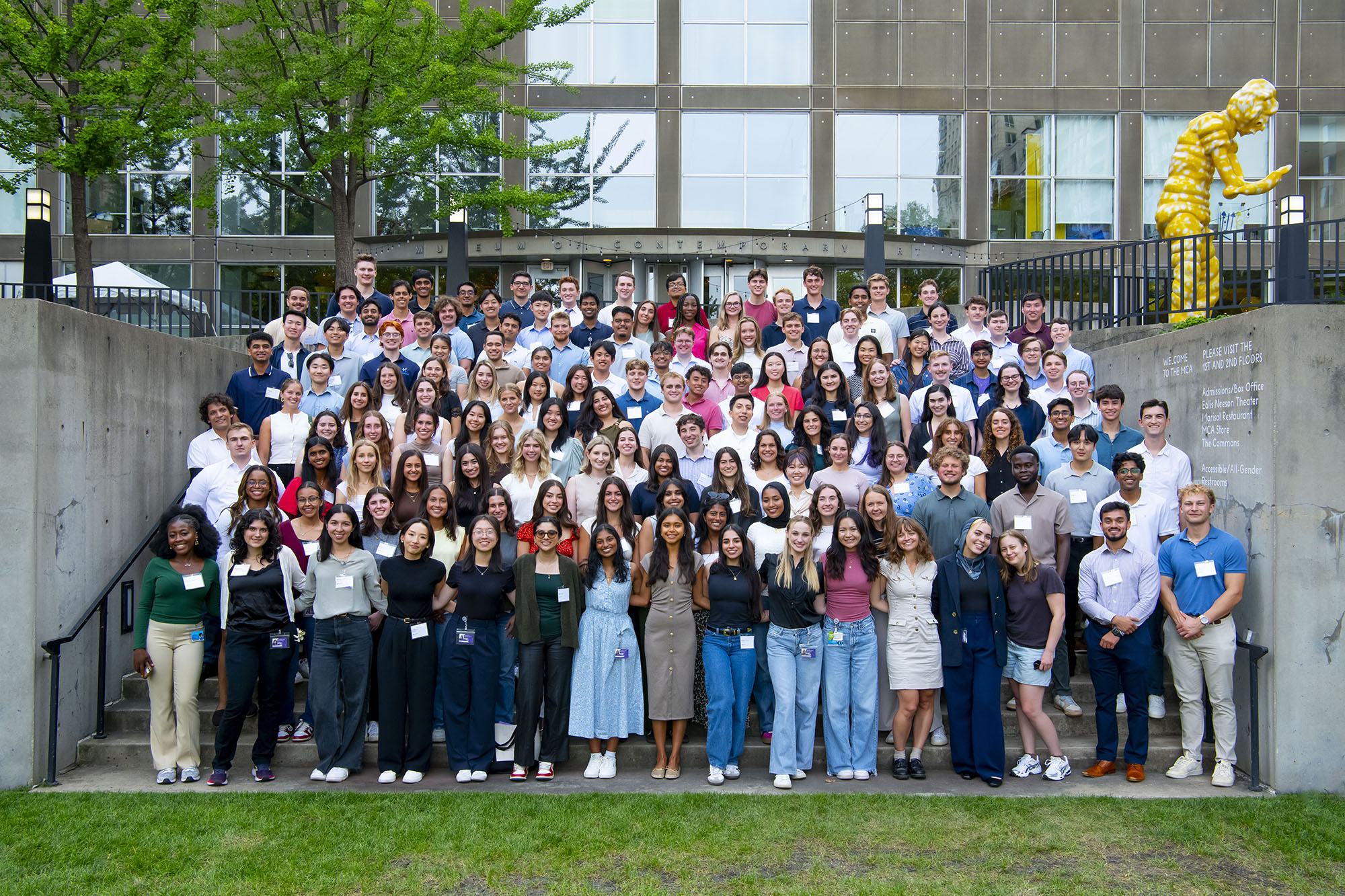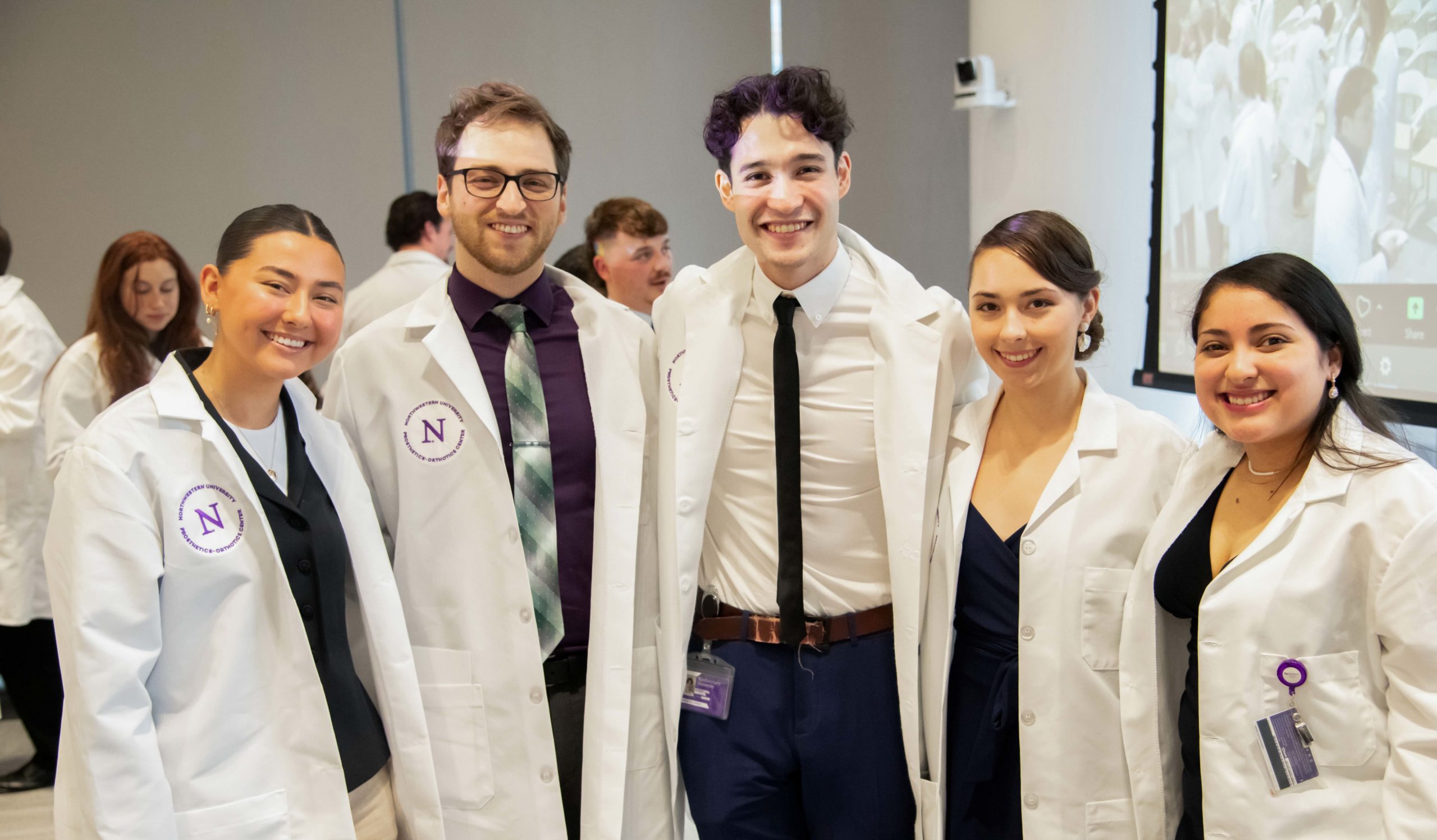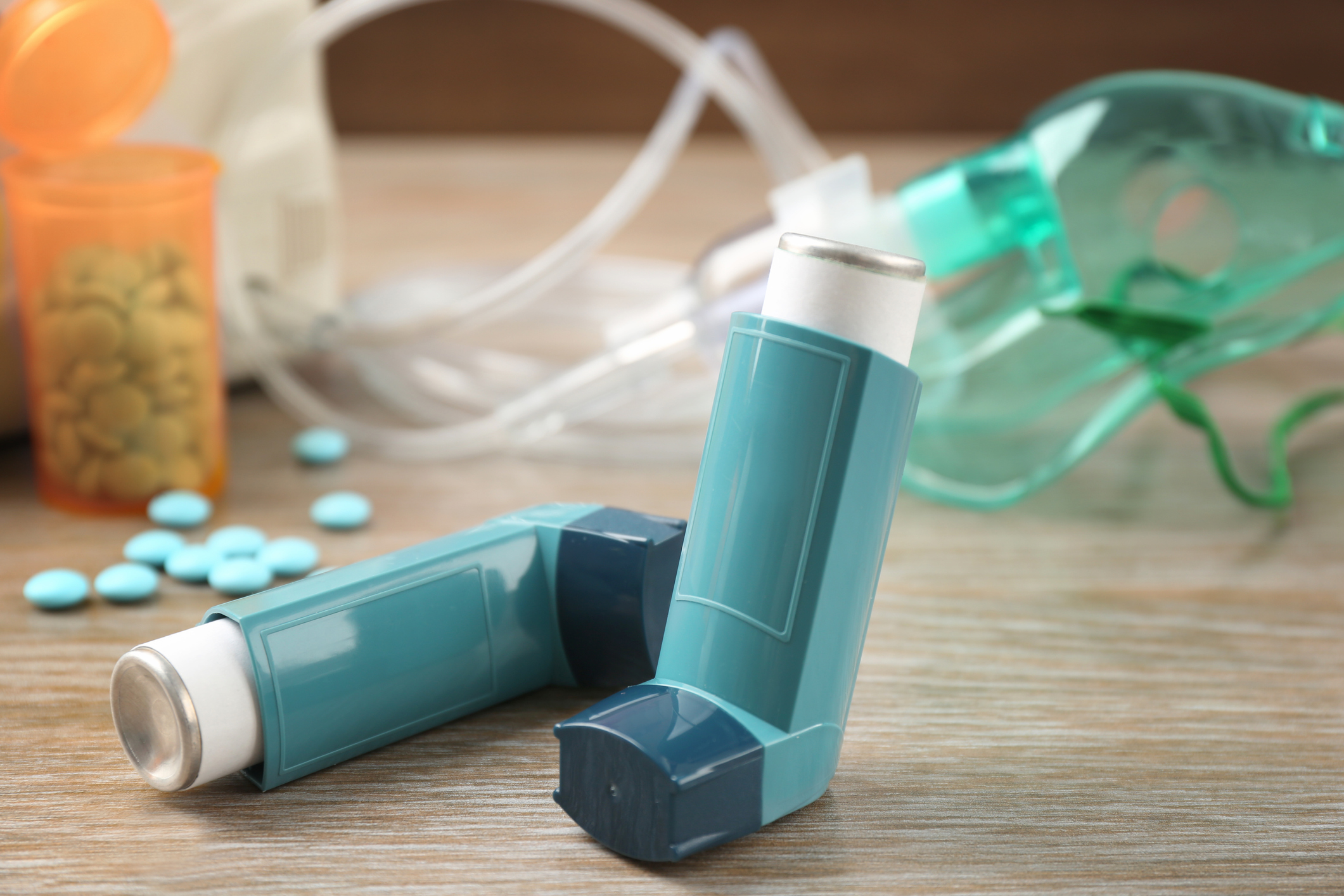Media Coverage
The work done by Northwestern University Feinberg School of Medicine faculty members (and even some students) is regularly highlighted in newspapers, online media outlets and more. Below you’ll find links to articles and videos of Feinberg in the news.
-
Chicago Tribune
–
Chicago COVID-19 risk rises to ‘medium’ as hospital admissions increase
Chicago’s COVID-19 risk level has risen from “low” to “medium” for the first time since last January. Over the last week, 34 people per day have been admitted to Chicago hospitals because of complications with COVID-19, CDPH data shows. Hospitalizations have slowly risen since July, when admissions hit a pandemic low of three per day. COVID-related hospital admissions rose 11% in the last week, according to the CDPH. At Northwestern Memorial Hospital’s intensive care unit, medical director Susan Russell, MD has seen an uptick in COVID-19 patients. “It’s certainly not the surge levels we’ve seen in the past few years, but there is a definite increase,” Russell said. “I’m disappointed, but not surprised.” The hospital isn’t seeing the prolonged severe illness that many caretakers handled early in the pandemic, she said. But while hospitalized patients are generally having shorter ICU stays, many people — especially immunocompromised people — are still facing severe complications. “We are still seeing some very bad infections and people ending up on a ventilator,” Russell said. “It’s not the same volume as it was before, but we are seeing it.”
-
WGN
–
Changes coming to popular asthma medicine Flovent: What pharmacists want you to know
There is a major medication change in the new year many may not know about. A widely used drug for those with asthma is off the shelves and a local pharmacist says patients need to act fast to stay healthy. The switch to a generic will lower the cost, but Northwestern Medicine pharmacist and assistant professor of orthopaedic surgery at Northwestern University Feinberg School of Medicine Sterling Elliott says there’s more to the story than economics. “It really has a huge percentage of the marketplace,” Elliott said. “The best things steroids do is help with inflammation, and asthma is inflammation in the respiratory tract.” Users will have to re-apply for coverage of essentially the same drug they’ve been taking all along. “It’s the same formulation. It’s certainly the same active steroid,” Elliot said. “It will be sent to the insurance carrier under a different identity and that identity needs to be approved and moved through the insurance process when they go to their local pharmacy to get the prescription.” Any delays could be dangerous – especially during respiratory virus season. “The trickle-down impact is you run the risk of asthma being more poorly controlled and you have some of those urgent asthma flare ups,” Elliot said. “It has the potential to send anyone to the ER if the flare up is that bad that it can’t be controlled at home.”
-
Chicago Tribune
–
At Northwestern Medicine, nonbinary patients can now record their legal sex as ‘X’
Sumanas Jordan, MD, PhD, knows transgender and nonbinary patients have unique needs. About half of her patients come in for gender-affirming surgeries, and their tests and treatments often lead to deep conversations about gender identity. Jordan is an assistant professor of plastic surgery at Northwestern University Feinberg School of Medicine. Now, conversations about gender at Northwestern Medicine are expanding to include patients’ medical records. As of December 18, Northwestern Medicine patients can record their legal sex as “X’ in electronic medical records. “X” is an alternate gender marker for those who do not identify as male or female. On legal records, it’s commonly used by transgender, nonbinary and intersex people. “Over the last year, since we knew this law was going to be put into place, we’ve been working really hard to make sure our system was ready for that,” Jordan said. “It doesn’t seem like a huge task … but that little letter actually affects a number of downstream events.” Further, “Patients with X will have many different needs, but one need they’re all going to have is to have been treated with dignity and respect across the board,” said Lauren Beach, director of the ADVOCATE program at Northwestern Medicine and assistant professor of medical social sciences and epidemiology at Northwestern University Feinberg School of Medicine, who uses the pronouns they/them. The program works to improve public health research by incorporating the needs and concerns of LGBTQ+ patients. Seeing an X on a patient’s legal medical record will prompt doctors to ask for a patient’s name and pronouns, and to ask about their anatomy separately from their gender identity, Beach said.
-
WebMD
–
Dietary Supplements: Which Work? Who’s Minding the Store?
The market for dietary supplements – vitamins, minerals, botanicals, herbs and other products promoted as ways to help you feel better, look better, perform better, sleep better and stay healthy – is booming, and that boom isn’t done. The industry grew from about 4,000 products in 1994 to 80,000 in 2016. Experts worry about adverse effects from mega doses and point out the lack of evidence of benefit for many supplements. More government oversight is sorely needed, some say. Most people view supplements, at worst, as benign preventive products, said Jeffrey A. Linder, MD, MPH, chief of general internal medicine at Northwestern University’s Feinberg School of Medicine in Chicago. But they aren’t always harmless. With too much emphasis and reliance on supplements, Linder said, “I’m more worried that people are getting distracted from things that will actually help them be healthy, like exercise, eating a healthy diet, and maintaining a healthy weight.” While there’s no one-stop reference on which supplements are worth taking, various organizations as well as researchers attempt to summarize the evidence and issue conclusions. Recently, the U.S. Preventive Services Task Force issued recommendations on the evidence for supplements in preventing cardiovascular disease (diseases of the heart and blood vessels) and cancer. Linder co-wrote an editorial to go with those recommendations. In summary, he said, the task force concluded that “there is insufficient evidence about pretty much all supplements” for preventing cardiovascular disease and cancer, and specifically recommended against vitamin E and beta carotene for preventing those diseases.
-
NBC News
–
Respiratory illnesses on the rise across U.S. as millions gather for holiday weekend
As millions of people gather for the holiday weekend, health officials are reporting that respiratory illnesses are on the rise. The Centers for Disease Control and Prevention said weekly flu hospital admissions are increasing and Covid-19 cases are also rising across the United States. Marc Sala, MD works in the ICU and is an assistant professor of pulmonary and critical care at Northwestern University Feinberg School of Medicine, “we have to be prepared for ongoing cases coming into the ICU. There is a cornucopia of all these viruses, that we have known before, that have come back, and also the COVID that we were dealing with before.” He continues to encourage everyone to get vaccinated, wash your hands, wear your mask and not touching your eyes to keep yourself and others around you safe this holiday season.
-
Chicago Tribune
–
AI model developed by Northwestern researchers could suggest better treatment plans for breast cancer patients
Mohamed Tageldin has worked at the intersection of artificial intelligence and pathology, the study and diagnosis of diseases, for six years. Tageldin, a resident physician at Northwestern University’s McGaw Medical Center, is part of a team of researchers that has developed an artificial intelligence model to more precisely predict long-term outcomes for breast cancer patients. At a time when some industries are shying away from and questioning the use of AI in daily work, those in the medical field are leaning into the support the technology can provide to doctors. Researchers found that with current prognosis methods used by pathologists, some patients are placed into higher-risk categories when, in reality, the patients could undergo shorter and less intense treatment plans. “For those people we recategorize, we could reduce the duration or intensity of their chemotherapy, and hopefully, achieve the same clinical outcome with less side effects,” said study co-author Lee Cooper, PhD. Cooper, an associate professor of pathology at Northwestern University Feinberg School of Medicine, said the algorithm assesses patients differently from human pathologists and previous models by studying both cancerous and noncancerous cells — such as immune cells — in a prognosis.
-
ABC News
–
Some people opt to pause drugs used for weight loss over the holidays. Is it safe?
Clinical studies show users of weight loss medications can lose between 5% and 20% of their body weight on the medications over time. Ozempic, Wegovy and Mounjaro are all injectable medications that are typically prescribed to be taken once per week. Side effects of the drugs can include severe nausea, vomiting, diarrhea and constipationVeronica Johnson, an obesity medicine specialist at Northwestern Medicine, told “GMA” that while there are no known long-term side effects of pausing and restarting the medications, doing so may lead to increased side effects such as increased appetite and nausea, as well as weight gain. “If a patient skips their medication for one to two weeks, there is a potential for them to have some increased side effects,” said Johnson, who does not treat Winfrey, Svensson or Kelly. “They might not see those improvements in their hunger and appetite, and so they’ll inevitably eat more and that may contribute to some weight gain.” It is advised to consult a physician before stopping weight loss medications to minimize the risk of side effects.
-
Chicago Tribune
–
‘Tripledemic’? Local medical experts urge vaccination as COVID, flu and RSV hospitalizations spike nationwide.
As COVID-19 hospitalizations rise across large swaths of Illinois and the nation, only about 11% of Chicago residents are up to date on vaccination against the virus. The combination is concerning many health officials as respiratory virus season amps up and the Christmas and New Year holidays approach. Medical experts are also alarmed by a simultaneous rise in recent hospitalizations for other respiratory illnesses like RSV and the flu, with the CDC issuing an “urgent need” to raise vaccination coverage against all three viruses nationwide. The “relatively good news is that the virus is not as virulent as it once was” and the public now has more immunity from vaccinations and previous infections, said Elizabeth McNally, MD, PhD, director of the Northwestern University Feinberg School of Medicine Center for Genetic Medicine. “So most infections are limited. Hospitals still have to take precautions, and having an infection is going to be worse in people with chronic illness or people with immunosuppression,” she added. “Hospitals are still operating at very high capacity, so please be patient with your health care providers.”
-
Yahoo! News
–
What mice in VR googles can tell us about our brains
Lab mice strapped to mini virtual reality googles are roaming through digital mazes in the latest breakthrough in neurobiology. And they hae a lot to teach us about how memory works. In pursuit of identifying the neurons in the brain that form memories, a team of researchers led by Daniel Dombeck, PhD, a professor in the university’s department of neurobiology, created miniature VR goggles to place on lab mice to study how they remember navigational cues when traversing digital mazes. “The most advanced instruments to image brain activity are large, table-top devices that cannot be carried around on a mouse’s head as they move through the environment. So instead, we hold the mouse’s head still under the large microscopes (so we can study their brains), and we let them run on a treadmill mounted under their limbs,” Dombeck said. He added that the movements of the treadmill move the animal through a virtual world displayed in the goggles, complete with twisting mazes and depictions of predators like owls. “With this set-up, we can then use our cutting-edge microscope systems to study brain activity during navigation,” Dombeck said. “We are trying to identify the exact neurons in the brain that are forming memories of the mazes, and in those neurons, we are trying to identify which synapses are being modified to form the memories and through what mechanisms those synapses are modified.”
-
NPR
–
Research shows a big increase in children taking melatonin.
New research shows a big increase in children taking melatonin to help with sleep. Pediatricians warn the long-term effects of the hormone supplement aren’t known. Nia Heard-Garris, MD is an assistant professor of pediatrics (advanced general pediatrics and primary care) at Northwestern University Feinberg School of Medicine and says she understands why desperate parents turn to melatonin to help their kids sleep. “I’m also a mom, so for all the parents out there with kids that have sleep issues, I get it.” However, she says given all the unknowns, the focus needs to be on sleep hygiene first, things like turning off screens at least an hour before bedtime, using blackout shades and not letting kids stay up more than an hour or two past their normal bedtime on weekends and vacations. “Now, if we’re at a situtation that we have tried everything – they’ve seen a sleep specialist; you know we’ve kind of done all the things – then I will prescribe melatonin.” Heard-Garris says parents should definitely talk to their pediatrician before giving kids melatonin because it’s possible to give too much. Signs of an overdose in kids include irritability, headaches, stomach pains and dizziness and severe drowsiness.






